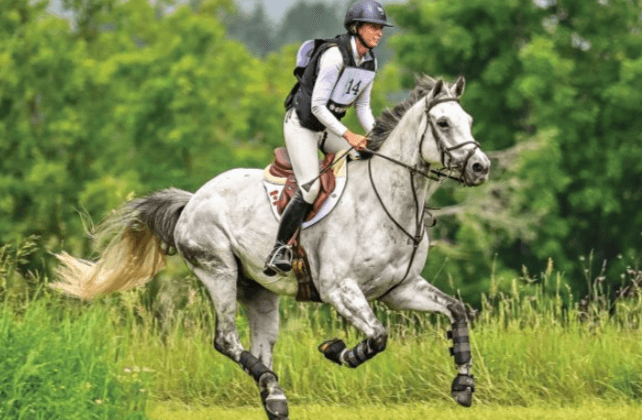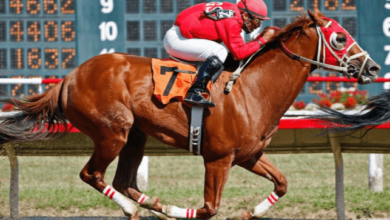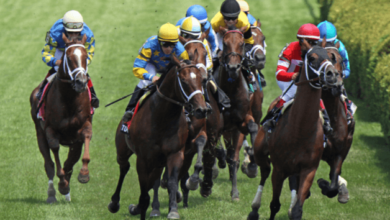How many hours do you spend training your horse each week for racing?

Introduction
Training a horse for racing is a complex and time-consuming process that requires dedication, knowledge, and consistency. The amount of time you spend training your horse each week can significantly impact their performance on the track. But how many hours should you dedicate to this endeavor? In this article, we will explore the optimal training hours, the factors influencing training duration, and effective training strategies to help your horse reach peak performance.
The Basics of Horse Racing Training
Training a horse for racing is not just about riding; it involves a combination of physical conditioning, skill development, and mental preparation. The training regimen must be tailored to the horse’s age, breed, fitness level, and the specific demands of the racing discipline.
Understanding Your Horse’s Needs
Each horse is unique, and understanding their specific needs is crucial. Factors such as breed, age, temperament, and previous training experience play a significant role in determining the optimal training schedule. Thoroughbreds, for instance, have different training requirements compared to Quarter Horses or Standardbreds.
Optimal Weekly Training Hours
The number of hours you spend training your horse each week can vary, but a general guideline for most racehorses is between 10 to 20 hours. This includes a mix of riding, groundwork, and rest periods to ensure the horse remains healthy and injury-free.
Daily Training Sessions
Daily training sessions should be structured and consistent. Most trainers recommend sessions lasting between 60 to 90 minutes, focusing on different aspects of fitness and skills each day. For instance, one day might focus on cardiovascular conditioning, while another emphasizes speed work or agility drills.
Incorporating Rest and Recovery
Rest is as crucial as training. Horses need time to recover and build muscle strength. Typically, one or two rest days per week are advisable to prevent overtraining and injuries.
Balancing Workouts
A balanced training regimen includes a mix of long, slow distance work to build endurance, fast-paced intervals for speed, and skill drills to improve agility and technique. Incorporating varied exercises keeps the horse engaged and reduces the risk of repetitive strain injuries.
Physical Conditioning
Cardiovascular fitness is paramount for racehorses. Incorporating trotting, cantering, and galloping into the training sessions helps improve stamina and heart health. Gradually increasing the intensity and duration of these exercises is essential for safe progression.
Skill Development
Training isn’t just about physical fitness; skill development is equally important. This includes practicing starts, maintaining pace, and learning how to handle different track conditions. Training should also include sessions on the starting gate to familiarize the horse with the race day environment.
Mental Preparation
Horses need to be mentally prepared for racing. Training should include scenarios that mimic race conditions to help the horse stay calm and focused. Exposure to different environments, sounds, and situations is beneficial for their mental fortitude.
Nutrition and Hydration
Proper nutrition and hydration are critical components of training. A balanced diet rich in essential nutrients supports muscle development and overall health. Ensuring your horse is well-hydrated, especially during intense training, is crucial for performance and recovery.
Monitoring and Adjusting Training Plans
Regularly monitoring your horse’s progress and adjusting the training plan accordingly is vital. Keep track of their performance, behavior, and any signs of fatigue or distress. Adjustments might include altering the intensity, duration, or type of exercises based on the horse’s response.
Common Training Mistakes to Avoid
Avoiding common training mistakes can save time and prevent injuries. Overtraining, inconsistent schedules, and neglecting rest periods are some pitfalls to watch out for. Ensuring a gradual increase in training intensity helps prevent overloading the horse’s system.
Involving Professional Trainers
For optimal results, consider involving professional trainers. They bring expertise and experience that can enhance your horse’s training program. Professional guidance ensures that the training is systematic, goal-oriented, and safe.
Importance of Vet Check-Ups
Regular veterinary check-ups are essential to monitor the horse’s health and address any issues promptly. A vet can provide insights into the horse’s physical condition and recommend adjustments to the training regimen.
Using Technology in Training
Advancements in technology have introduced tools that can aid in training. Heart rate monitors, GPS tracking, and video analysis can provide valuable data to fine-tune training programs and track progress accurately.
Setting Realistic Goals
Setting realistic and achievable goals is important for maintaining motivation and measuring progress. Whether it’s improving speed, endurance, or specific racing skills, having clear objectives helps in structuring the training effectively.
Training Young Horses
Training young horses requires special attention. Their training should start with basic groundwork before gradually introducing more intense exercises. Patience and consistency are key to building a strong foundation for their future racing career.
Seasonal Training Adjustments
Adjusting training schedules according to seasons is necessary. Weather conditions, daylight hours, and track availability can influence training plans. Adapting to these changes ensures that the training remains effective year-round.
Case Study: Successful Training Regimens Looking at case studies of successful training regimens can provide valuable insights. Examining the strategies used by top trainers and their approach to balancing work and rest can offer practical tips for optimizing your horse’s training.
FAQs
How long should a typical training session last for a racehorse? A typical training session should last between 60 to 90 minutes, focusing on different aspects of fitness and skill development.
How many rest days should a racehorse have each week? A racehorse should have one to two rest days each week to recover and prevent overtraining.
What type of exercises should be included in a racehorse’s training program? A racehorse’s training program should include a mix of cardiovascular conditioning, speed work, agility drills, and skill development exercises.
How important is nutrition in a racehorse’s training regimen? Nutrition is crucial as it supports muscle development, overall health, and recovery. A balanced diet rich in essential nutrients is vital for performance.
Should I involve a professional trainer in my horse’s training program? Involving a professional trainer can enhance the training program’s effectiveness due to their expertise and experience.
How do I monitor my horse’s progress during training? Monitoring your horse’s progress can be done through regular performance assessments, behavior observation, and veterinary check-ups.
Conclusion
Training a horse for racing is a meticulous process that requires a well-structured and balanced approach. By dedicating 10 to 20 hours per week, incorporating varied exercises, ensuring proper nutrition, and allowing for adequate rest, you can optimize your horse’s performance on the track. Regular monitoring and adjustments, along with professional guidance, can further enhance the effectiveness of the training regimen. With dedication and the right strategies, your horse can reach its full potential and achieve racing success.





